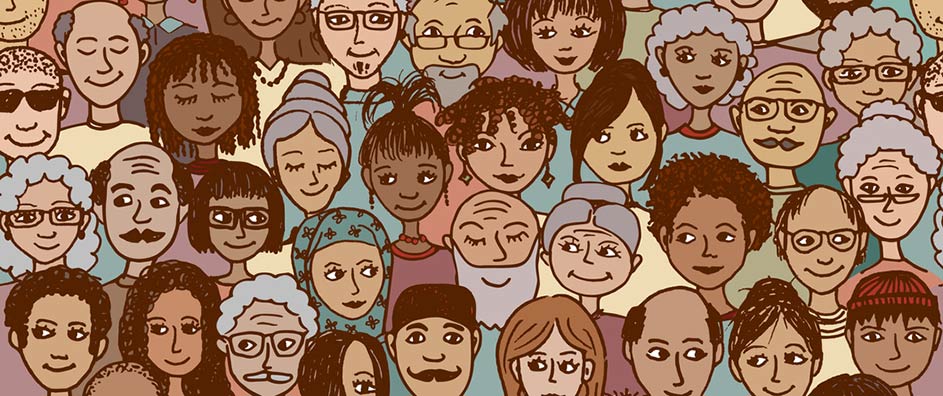In a world increasingly polarized by divisions of nationality, ideology, and belief systems, one might wonder: is the notion of the oneness of humanity merely a whimsical ideal, or does it possess the transformative capability to alter our societal fabric fundamentally? This question encapsulates the essence of Bahá’í teachings, which advocate for the oneness of humanity as a foundational principle manifesting more than theoretical aspirations. Understanding this concept not only requires intellectual engagement but also emotional introspection and social commitment, challenging us to reimagine our roles as global citizens.
The Bahá’í perspective on the oneness of humanity posits that all human beings are fundamentally interconnected, formed from the same essence. This interconnectedness transcends superficial distinctions, revealing that the artificial barriers erected by race, religion, and socio-economic status are detrimental to our collective advancement. Yet herein lies a potential conundrum: how can societies that so fiercely cling to their divisions reconcile these tensions with the doctrine of unity? The answer may lie in a multifaceted exploration of the Bahá’í principles that illuminate this path to unity.
At the heart of Bahá’í teachings is the assertion that humanity is one family. This ideal is not merely rhetorical; it is grounded in a profound ethical obligation to recognize and cultivate the innate dignity of every individual. This recognition promotes a culture of empathy and compassion, creating fertile ground for reconciliation of differences. Consider, for instance, how the tendency to categorize others can hinder genuine understanding. When we apply a nuanced comprehension of oneness, we begin to dismantle these barriers and foster genuine interpersonal connections.
Another critical component of the Bahá’í understanding of oneness relates to the idea of universal education. Knowledge is a powerful catalyst for societal development, and the Bahá’í teachings assert that access to education should be universal and equitable. This accessibility empowers individuals, regardless of background, to contribute meaningfully to their communities. Are we, as global citizens, prepared to advocate for education as a fundamental right? Can we envision an environment where every child, regardless of their geographic or socio-economic circumstances, has the opportunity to flourish? These questions challenge us to reassess our collective responsibility in bringing about educational justice for all.
Furthermore, Bahá’í teachings emphasize consultation as a dynamic and transformative tool for social progress. This collective decision-making process encourages diverse perspectives, fostering an atmosphere where each opinion is valued. As society grapples with complex issues, from climate change to social inequality, how might the adoption of a consultative approach reshape our responses? If we collectively prioritize holistic discourse over divisive rhetoric, we may be better equipped to navigate our most pressing challenges and forge a united front in our endeavors.
The role of service and altruism is also integral to the principle of oneness. The Bahá’í belief in the significance of service to humanity promotes an active engagement with the world around us. This selfless approach challenges the prevalent notions of individualism by urging individuals to transcend personal gain in favor of communal upliftment. The question thus arises: How can we encourage a culture of service that resonates authentically within our communities? Cultivating spaces that promote acts of kindness and generosity may lead to redefining our interconnectedness and instilling a collective sense of responsibility.
Moreover, the Bahá’í concept of the harmony of science and religion adds a layer of complexity to discussions regarding unity. This reconciliation strives to eliminate the oft-perceived discord between faith and empirical inquiry, advocating that both realms have a vital role in the progression of humanity. Rational discourse should not dismiss spiritual insights, nor should faith be blind to the empirical truths unveiled by science. Are we, then, ready to embrace a synthesis that acknowledges the contributions of both domains as we journey toward a more harmonious existence?
On an international scale, the Bahá’í teachings call for the establishment of global governance that reflects the aspirations of all humanity. This vision contends that conflicts among nations can be mitigated through cooperative frameworks that prioritize collaboration over competition. By fostering a sense of shared responsibility and collective accountability, global institutions could be transformed to promote peace and unity. However, this vision raises the provocative question: Is the establishment of such a global governance feasible in a world rife with nationalism? To adequately address this concern, it necessitates a concerted effort from the global community to envision a collaborative future.
Ultimately, the oneness of humanity as articulated in Bahá’í teachings beckons us to embark on an inward journey, compelling us to challenge our prejudices and embrace a broader understanding of community and responsibility. Each individual holds a crucial role in this intricate mosaic of human connectivity. By fostering dialogue, advocating for education, engaging in service, and embracing a multidimensional understanding of knowledge, we cultivate a global ethos that celebrates diversity while firmly upholding unity.
In conclusion, the path toward realizing the oneness of humanity is fraught with challenges, yet it is simultaneously radiant with possibility. By reframing our approach to the principles of Bahá’í teachings, we can navigate the intricacies of modern existence with renewed vigor. Ultimately, this profound truth invites us to see each other not as disparate entities, but as integral participants in the magnificent tapestry of humanity. When we regard ourselves and others in this light, we begin to realize the profound potential embedded within our shared existence.
